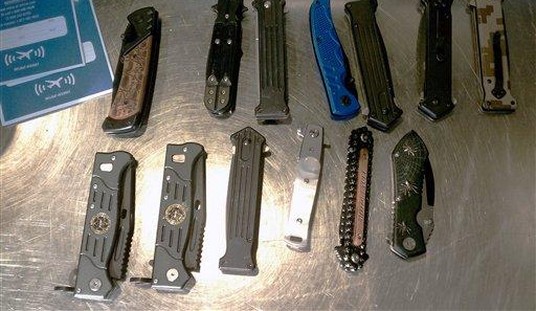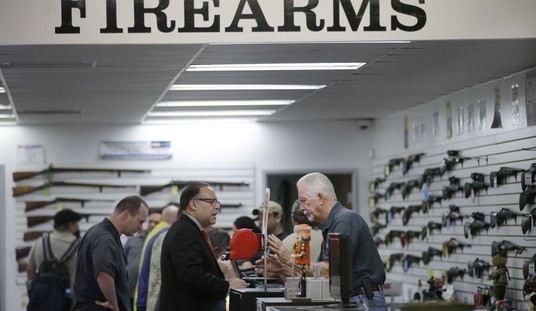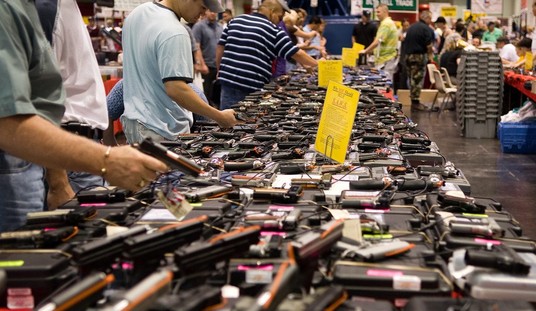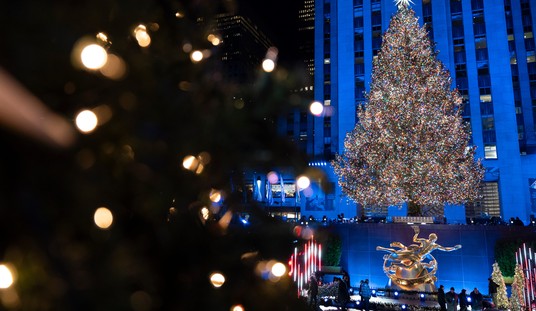Not that I would expect a university lecture and panel discussion called “The Cult of the Gun In U.S. Culture” to be a fair and balanced look at the history of the Second Amendment, but even by academic standards it sounds like a recent event at UCLA was far more about indoctrination than education, or God forbid, actual debate.
UCLA itself actually sent out a press release on the event, which one of the organizers said was meant to “stimulate conversation and turn research and critical thinking into action.” Instead, it was a one-sided affair in which there were many voices heard, but only one real opinion: guns are bad, gun control is good, end of story.
The story of America is a story of guns — from the earliest days of expansion to the political divide of 2020 — and every chapter reveals thorny questions about nation building, race and whose rights most deserve to be protected.
That premise guided the UCLA Meyer and Renee Luskin Lecture Series’ recent event, during which historian, author and educator Roxanne Dunbar-Ortiz discussed the “gun love” ingrained in U.S. culture.
The 390 million privately owned guns in the United States — most of which are semiautomatic or high-caliber sidearms and rifles — account for half the worldwide total, Dunbar-Ortiz said, even though Americans make up just 4% of the global population. Of American adults who own guns, 61% are white men.
The numbers tell part of the story, but society “cannot make sense of gun hoarding and the cult of the gun if we don’t deal with white nationalism,” she added. “And we can’t deal with white nationalism without dealing with United States history.”
Dunbar-Ortiz, author of “Loaded: A Disarming History of the Second Amendment,” interspersed her keynote address with insights from her own deep involvement with firearms as a young woman. Held at UCLA’s Luskin Conference and Guest Center, the event included a panel discussion with Dunbar-Ortiz; Adam Winkler, a gun policy expert and professor of law at UCLA School of Law; Ismael Ileto, an activist fighting against gun violence and hate crimes; and moderator Brad Rowe, a lecturer at the UCLA Luskin School of Public Affairs and an expert in criminal justice policy.
“What seems clear to me is that we cannot depend on the rush of adrenaline, the indignation, the inspiration that we feel after a tragic event to carry us through the hard work of policy reform,” Rowe said.
The panelists related personal tales of loss, debated how to best effect change and discussed arguments over the reach of the Second Amendment.
Right off the bat I can think of one person who I would have loved to have seen on that panel; Dr. Nicholas Johnson, professor at Fordham University School of Law and the author of Negroes and the Gun: The Black Tradition of Arms in America. Dunbar-Ortiz may have noted that 61% of gun owners in the United States are white guys, but she apparently doesn’t give a damn about the 39% of gun owners in this country who aren’t. The fact is, the rights protected by the Second Amendment are and have been incredibly valuable to the safety and security of individuals fighting for their rights and in the civil rights movement since the 19th century, but I doubt any students attending this lecture heard much, if anything, about that.
Dunbar-Ortiz herself has exercised her Second Amendment rights over the years, but what was fine for her must be forbidden for others.
Even as she delivered blunt appraisals of modern-day policing, the National Rifle Association, Republican leaders and the Junior ROTC — a program that she believes is responsible for the “normalization of militarism for children” — Dunbar-Ortiz shared stories of her own immersion in gun culture. She grew up around firearms in rural Oklahoma, and in her 30s, she joined an armed radical-left group that amassed a huge arsenal.
“A firearm slung over your shoulder or a 9 mm Browning tucked under your belt creates a sense of amplified power, without which you feel naked and vulnerable,” she said. “Guns are awesome. They are also beautiful objects that are addictive.”
It takes a special kind of someone to bash the JROTC while waxing rhapsodically about the armed radical group that she belonged to. And Dunbar-Ortiz didn’t just “join” this group. She founded it.
Cell 16 was a radical feminist separatist group that believed in armed self-defense for women, as well as separating themselves from men. The group never got far beyond Boston, and disbanded five years after it was founded in 1968, but Dunbar-Ortiz still gets the cred of being an armed 60s radical even though she now says things like, “I doubt that any common-sense firearms regulation can be enacted until the Second Amendment is understood to represent white supremacy and genocide.”
Until the lies about the Second Amendment are understood to be the truth, in other words. To say that the Second Amendment represents white supremacy is to deny agency to those who used firearms to protect themselves against white supremacy. It also denies the historical reality that it is gun control laws that are at the root of the deprivation of rights based on color or ethnic background. We are still working towards that day when the People truly do possess the right to keep and bear arms, but that story is one of progress, and I believe we are headed in the right direction.
It’s a real shame that there wasn’t any dissenting viewpoint on that panel, because it sounds like Dunbar-Ortiz got quite a bit wrong and left quite a bit out of her tale of how the Second Amendment came to be. Any student attending walked away with a warped perspective on the right to keep and bear arms, and the act of academic malpractice on the part of UCLA deserves to be called out, just as the students deserve better for their tuition money.









